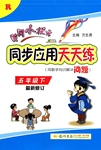��Ŀ����
����Ŀ������ʡ��ò��ƽԭ������͵�ɽΪ����ƽԭ���ռȫʡ�������31��3%����Ҫ�ֲ��ڻ����Ա�������������������ռ29��5%��ɽ��ռ31��2%����Ҫ�ֲ��ڻ������ϵ������Ϸ����������ܵ��ε����ص�Ӱ�죬����ķֲ��ȷ���Ҳ������ͬ���ݴ˲�����±�����������⡣
����ʡ��������ֲ�ͳ�Ʊ�
���� | �������� ������ | ����� ��ƽ��ǧ�ף� | ������� ��ƽ��ǧ�ף� | ���װ뾶 ��ǧ�ף� | �ܶȣ���������/1000ƽ��ǧ�ף� |
ƽԭ | 929 | 64025 | 68��92 | 4��68 | 14��5 |
���� | 343 | 35868 | 10457 | 5��77 | 9��5 |
ɽ�� | 376 | 38952 | 10340 | 5��73 | 9��7 |
18����1�����ͼʾ��֪����ʡ
A���Ϸ������ļ��������ϴ� B�����������ļ����ܶȽϴ�
C���Ϸ������ļ��������С D�����������ļ����װ뾶��
��2��
A������ȽϷḻ B����ͨ����
C�������ģ�ϴ� D���˿ڷֲ���ɢ
���𰸡�
��1��B
��2��D
��������
���������
��1����ͼ�����Կ�����ʡ��ƽԭ���������ܶȽϴ�,��ƽԭ��Ҫ�ֲ��ڸ�ʡ�ı����������Ϸ����������ɽ�صļ�����Ϊ719��ƽԭ929�٣������Ϸ��ļ���������С��ͼ����ʾ�Ϸ������ļ����������
��2����ͼ�����Կ�������ʡɽ�غ���������ļ���������ͽ��װ뾶����ƽԭ����,����Ҫԭ����ɽ�غ���������˿ڷ�ɢ,��λ����ļ���������С,���Լ���Ľ�������ͽ��װ뾶����ƽԭ������

 �����Ծ���ĩ���100��ϵ�д�
�����Ծ���ĩ���100��ϵ�д� ˫��ͬ������ѵ��ϵ�д�
˫��ͬ������ѵ��ϵ�д� �Ƹ�С״Ԫͬ������������ϵ�д�
�Ƹ�С״Ԫͬ������������ϵ�д�����Ŀ����ͼ���ش�����������
��1������д���±��е�ũҵ��������
ũҵ�������� | ��Ҫ�ֲ����� |
A | ŷ�����������������Լ��������Χ |
B | ���������ƽԭ���ҹ����������� |
C | �Ĵ����ǵ�С��������� |
D | ����͢�������������Ĵ����ǡ������� |
E | ���ǡ������ǡ����� |
��2������Eũҵ�������ص㡣
��3������������ũҵ����չ����λ����������չ����������ܲ�������̬�������⡣